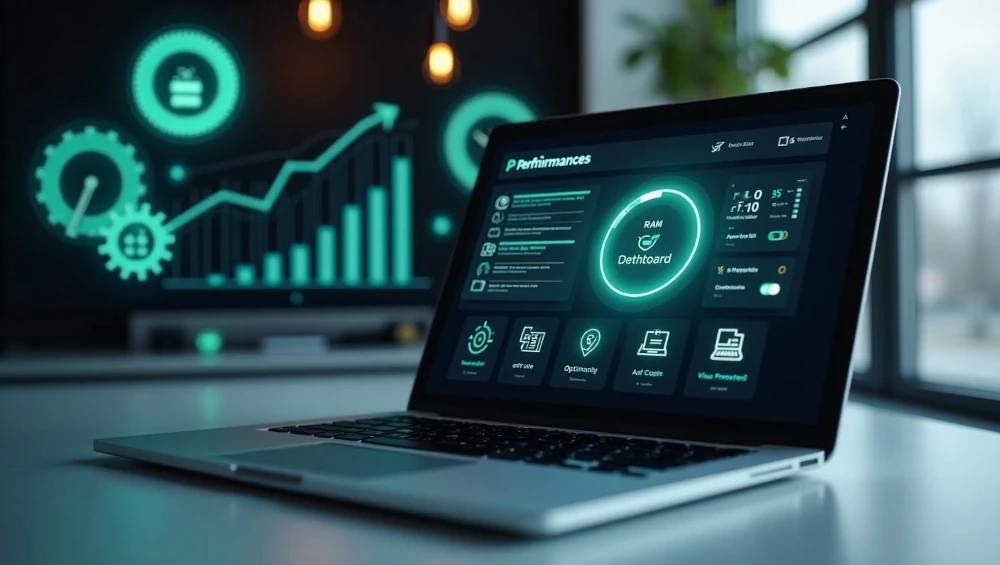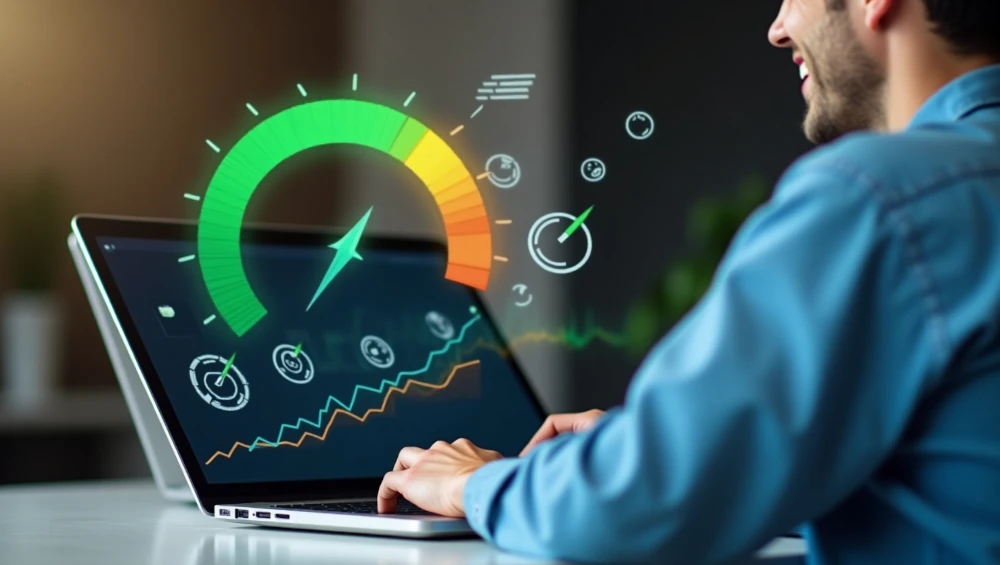How to Speed Up a Computer?
Learn how to speed up your computer with easy tips to boost performance, improve startup time, and optimize system efficiency.

In the fast-paced digital world of today, a slow computer can be quite irritating. It doesn't matter if you are using your PC for work, gaming, or casual browsing; performance is key. Computers slow down over time, thanks to all that software, old drivers, background apps, and hardware limitations. The good news? You don't always have to buy a new device — there are plenty of ways to breathe new life into your existing computer.
Get your computer faster with this complete guide, from basic suggestions to more technical tweaks. Let's dive in!
Why Do Computers Slow Down?
Before we dive into the fixes, it helps to understand what might be ailing your computer:
- Too many startup programs
- Outdated software or drivers
- HDD — Defragment disk/Fragmented hard drive
- Insufficient RAM
- Flushing out RAM-hogging background processes
- Malware or viruses
- Old hardware
- Cluttered storage
Knowing the cause will guide you in applying the correct solution.
Think of your computer like a workplace—faster results come from reducing lag, clearing clutter, and optimising your digital processes.
1. Disable Startup Programs
Having too many programs starting up at boot can slow down boot time and system performance massively.
How to Fix (Windows):
- To do this, press Ctrl + Shift + Esc to launch Task Manager.
- Click the Startup tab.
- Then, right-click and turn off programs you don't want, starting with Windows.
2. Delete Unnecessary Software
You likely don't use these old programs or bloatware, which are taking up disk space and system resources.
Steps:
- Visit Control Panel > Programs > Uninstall a program.
- Uninstall any software you don't use.
3. Clean Up the Hard Drive
Temporary files, old downloads, cache, and other digital clutter can slow your system down.
Tools to use:
- Windows Disk Cleanup
- CCleaner(third-party software)
- Manually delete the files from the Downloads and Temp folders.
4. Add More RAM
Then, if your PC runs out of memory and starts using your hard drive as virtual memory, it will be much slower.
Recommended:
- I recommend 8 GB for general usage.
- 16 GB or more for gaming and professional usage.

5. Upgrade to an SSD
If you are still using mechanical hard disk drives, then switching to SSD (Solid State Drive) can significantly improve their speed, starting from boot time to launching the application.
Benefits:
- Faster read/write speeds
- Quieter operation
- Improved Multitasking
6. Run Virus and Malware Scan
Malicious software and viruses can take over system resources and jeopardize your security.
Recommended tools:
- Windows Defender
- Malwarebytes
- Bitdefender
7. Update Your OS and Drivers
The OS or hardware drivers are obsolete and can have compatibility and performance problems.
Steps:
- Windows) Go to Settings>Update & Security
- Check for and install updates
- Check and update drivers via Device Manager
8. Disable Visual Effects
Fancy animations and visual effects can eat up processing power, especially on older machines.
Steps:
- Right-click on This PC > Properties
- Click on Advanced system settings > under performance, click on settings
- Choose Adjust for best performance or customize
9. Manage Background Processes
Others run in the background for no good reason.
To fix:
- Open Task Manager (Ctrl + Shift + Esc)
- Review the Processes tab
- Kill unnecessary tasks (but watch out for closing necessary system processes)
10. Defragment Your Hard Drive (Only HDD)
If you are using an HDD, then defragmentation can improve performance by organizing fragmented files.
Steps:
- Type "Defragment and Optimize Drives" in the Search bar
- Choose your HDD and press Optimize
- Note that SSDs should not be defragmented as this can reduce their usable lifespan.
11. Adjust Power Settings
Using power-saving settings will lower performance.
Steps:
- Control Panel > Power Options
- Select High Performance or Balanced, not Power Saver
12. Cleaning the Browser Cache and Extensions
If you overload your web browser with cached files and too many extensions, it will slow down.
To clean the browser (Chrome):
- Go to the three-dot menu > More tools > Clear browsing data
- Remove unnecessary extensions
13. Restore or Refresh your OS
If all else fails, a fresh start can fix deep-rooted system problems.
Options:
- Reset This PC from the Windows Settings
- Install Windows or macOS from scratch (of course, backup files)
14. Monitor System Health
Monitor performance metrics with built-in or third-party tools.
Tools to try:
- Windows Resource Monitor
- HWMonitor (for temps and voltages)
- CrystalDiskInfo (for info on your hard-drive health)

Bonus Tips for Mac Users
- Spot resource-hogging apps in Activity Monitor
- Empty the System Storage (caches, logs, etc.)
- Control Login Items in System Preferences > Users & Groups
- Use CleanMyMac X or other similar tools
Conclusion
You do not need a tech degree or a lot of cash to improve your computer's performance. Through a mix of software adjustments, routine maintenance, and hardware upgrades, you can keep your PC or Mac chugging along for years to come. Start with the easy fixes and work up to more complicated solutions — every little bit can matter.
From removing bloatware, disabling background processes, or upgrading to an SSD, implementing the tips listed in this guide will help speed up your computer and regain your time and productivity.
FAQs
1. How do you make an old computer faster?
For older computers, the two best upgrades are replacing your HDD with an SSD and adding more RAM.
2. Does reinstalling Windows make your computer faster?
Yes, A clean install can remove bloatware, viruses, and system bugs and boost your system's performance.
3. What about third-party tools to optimize the speed of my PC?
Not always. While there are native Windows tools, third-party programs — like CCleaner, Malwarebytes, and Advanced SystemCare — can provide additional convenience.






